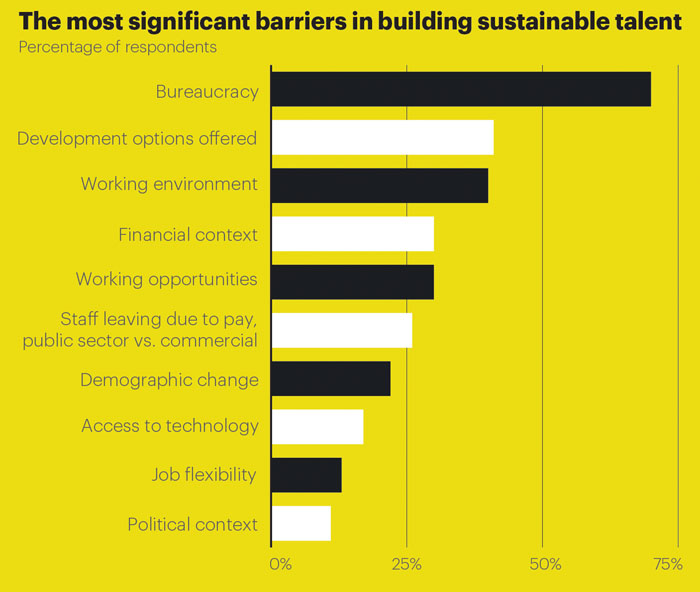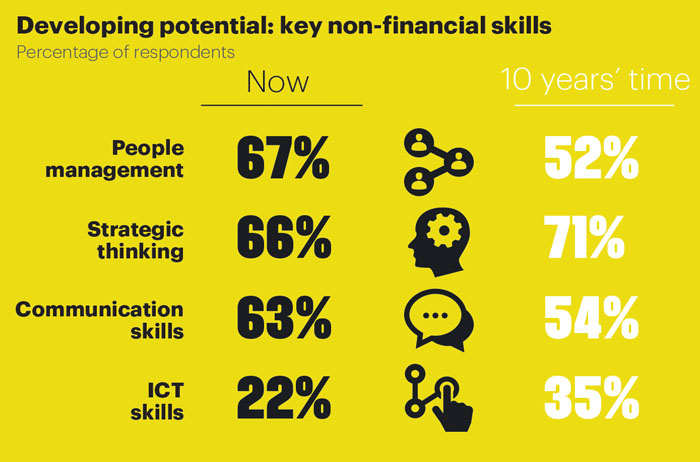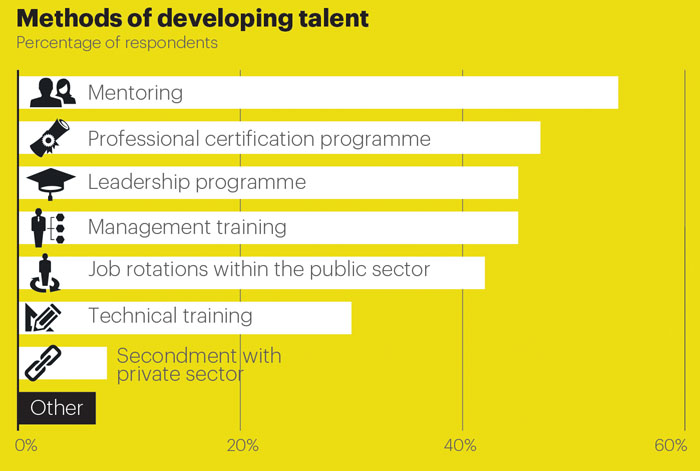Both experienced accountants and millennials at the start of their careers are key to the future of the public sector. We also know from our conversations with public sector organisations around the world, whether we look to developing or developed countries, that attracting and retaining finance talent is a challenge.
With automation, artificial intelligence and blockchain all promising to bring big changes to how we undertake financial management, audit and accounting in the future, the public sector must make sure it has the right talent to adapt. This is why CIPFA, on behalf of the International Colloquium on Financial Management for National Governments, surveyed 72 public sector organisations around the world to better understand the challenges in building sustainable talent.
The report we’ve developed from our research – Talent Management in Government Finance – is a world first, and should kick off a much-needed conversation about talent management strategies. It will also provide an initial evidence base from which we can start to develop a truly sustainable workforce for public financial management.
Among the results [see graphs below], we found the government sector has ‘category issues’ to overcome in attracting the best talent to its workforce. Respondents highlighted how bureaucratic processes, organisational conservatism and lower pay than corresponding corporate positions all contribute to negative perceptions of careers in government. Conversely, factors such as pensions, job security, a supportive culture and the uniquely challenging complexity and variety in the roles available could – with the right emphasis – far outweigh the perceived drawbacks of a government job.
What this highlights is the increasing need for the public sector to be agile when it comes to managing, developing, and retaining financial talent. Partly, this means ensuring that finance teams get the chance to explore continuing professional development opportunities, which are critical to engagement and retention strategies in any profession. Whether you are providing mentorship or secondments, government employers need to make sure they are providing their finance teams with timely and relevant opportunities that support individuals at differing stages of their careers.
However, supporting CPD is not the only key to drawing in and retaining talent, and this was highlighted by the organisations we talked to. Whether it’s work-life balance, job stability, the public sector ethos – or, for organisations thinking ahead, arrangements such as homeworking and flexible hours – in a competitive job market, these dynamics can make all the difference to attracting fresh talent into the public sector.
This research also shows how, in the next 10 years, the public finance professional will need to take on more complex skills and undertake an increasingly strategic role, focusing on planning and resourcing. They will need to understand and encompass digital technology, exponential growth in the availability of data and adapt to changes in working practices. Making this happen requires getting the strategies in place now. If the finance profession in government can get this right, it can build a high performance workplace, encourage a learning environment and contribute to a more diverse workplace.
Expanding CIPFA’s continuing professional development
Lindie Engelbrecht is a qualified chartered accountant and holds a Master of Accountancy degree.
She has extensive experience of membership growth and customer service within member organisations through her previous roles as executive director of the South African Institute of Chartered Accountants and chief executive officer of the Institute of Directors in Southern Africa.
A key focus for Engelbrecht and the CIPFA education team will be to strengthen the institute’s lifelong learning offerings and a review of the current curriculum.
She believes continuing personal development is the single unifying factor in every profession.
Professionals today require a much broader range of skills, which means CPD should no longer focus only on core compentencies but also business acumen, leadership, digital transformation and governance. All these areas are vital to career progression.
A focus on mentoring is something Engelbrecht introduced at both SAICA and IoD to assist young professionals in their career development and to provide an opportunity for more mature professionals to give back.
This is something that will soon be introduced at CIPFA.
Some of the results of the Talent Management in Government Finance report:


















